 The EAHP EU Monitor is a regular round up of news relevant to hospital pharmacy in Europe.
The EAHP EU Monitor is a regular round up of news relevant to hospital pharmacy in Europe.
You can subscribe to receive the EAHP EU Monitor by email HERE.
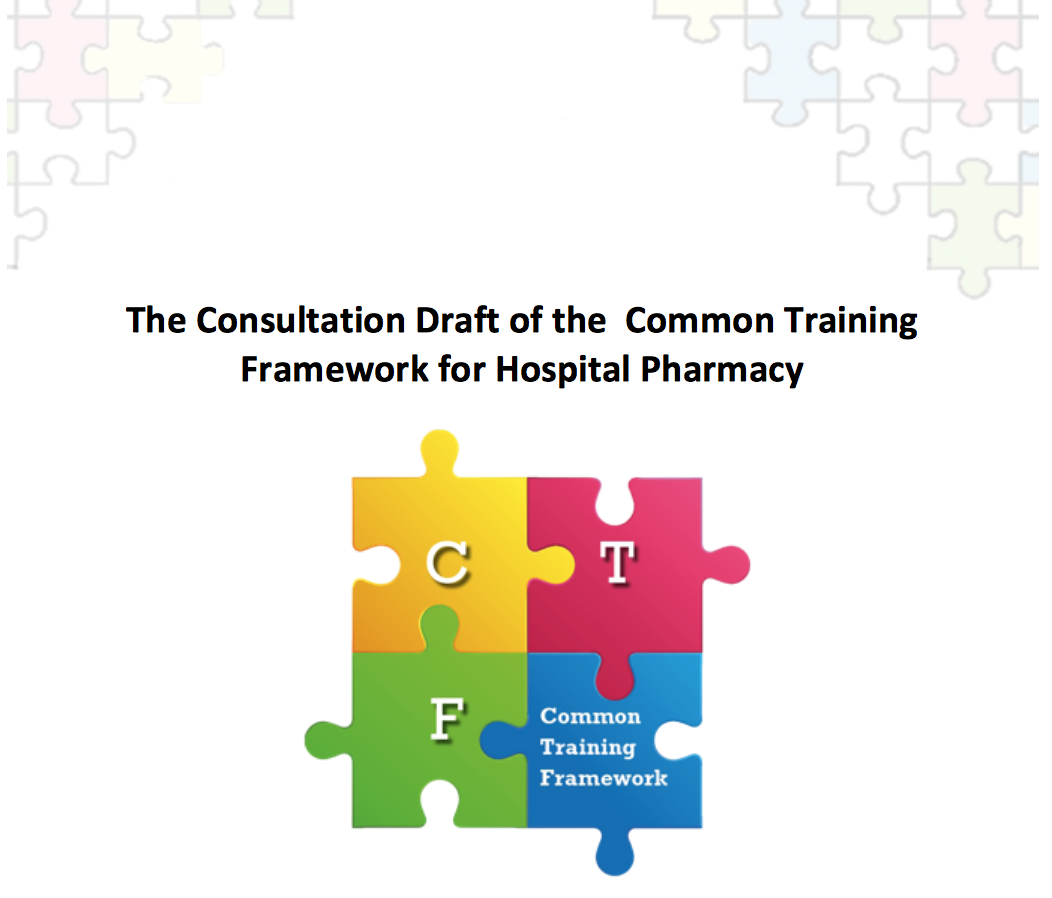
Draft version of hospital pharmacy common training framework published ahead of consultation
The European Association of Hospital Pharmacists (EAHP) has published a draft version of a potential common training framework (CTF) for hospital pharmacy in Europe. The publication comes ahead of an online Delphi method consultation on its content that will commence on 27 February 2017. Individuals and associations interested in providing their viewpoint have until 20 February 2017 to register to participate.
The draft framework was developed over 18 months by a pan-European group of 16 hospital pharmacists, led by Dr Andreia Bruno of the Portuguese Pharmaceutical Society.
The working group developed the draft framework in 3 phases:
- Consolidating information and understanding on the current status of hospital pharmacy education across Europe;
- Review and analysis of the hospital pharmacist competencies provided by national programmes; and,
- Proposing the core knowledge, skills and competencies that should form a draft common training framework for hospital pharmacy in Europe.
Background references for the proposed framework included the 44 European Statements of Hospital Pharmacy, the 2011 European Commission sponsored project Pharmine, as well as the curricula for a broad range of existing hospital pharmacy post graduate education programmes across Europe.
Speaking of the publication, Dr Andreia Bruno, chair of the Working Group that developed the draft framework, said:
“What our working group discovered was that, although structures for hospital pharmacy (formal and informal) across Europe may differ, the skills and competencies delivered at the end of the process are really quite similar. They all meet the same needs of leveraging the pharmacist’s expertise and potential within the hospital setting, where acute conditions, rare diseases, complex and specialised medicinal therapies, clinical trials and many other particularities have a strong presence. The draft framework therefore offers a synthesis of practice realities across Europe based upon firm foundations such as the 2011 Pharmine project and existing hospital pharmacy curricula.
Now we are providing scrutiny opportunity to the wide variety of impacted stakeholders via a Delphi method consultation. I encourage every interested individual and stakeholder to sign up for the consultation before the 20 February deadline!“.
A common training framework for hospital pharmacy will represent an agreement on the competencies, knowledge, skills and attitudes required by the profession to deliver the 44 European Statements of Hospital Pharmacy.
More information about the common training framework project is available HERE.
**Readers of the EAHP EU Monitor with an interest in the Common Training Framework may also be interested in Keynote Speech 3 at the upcoming EAHP Congress in Cannes (22-24th March 2017). Entitled “Introducing the Common Training Framework”, EAHP President Joan Peppard will explore the purpose, challenges and future of the framework. More information HERE.
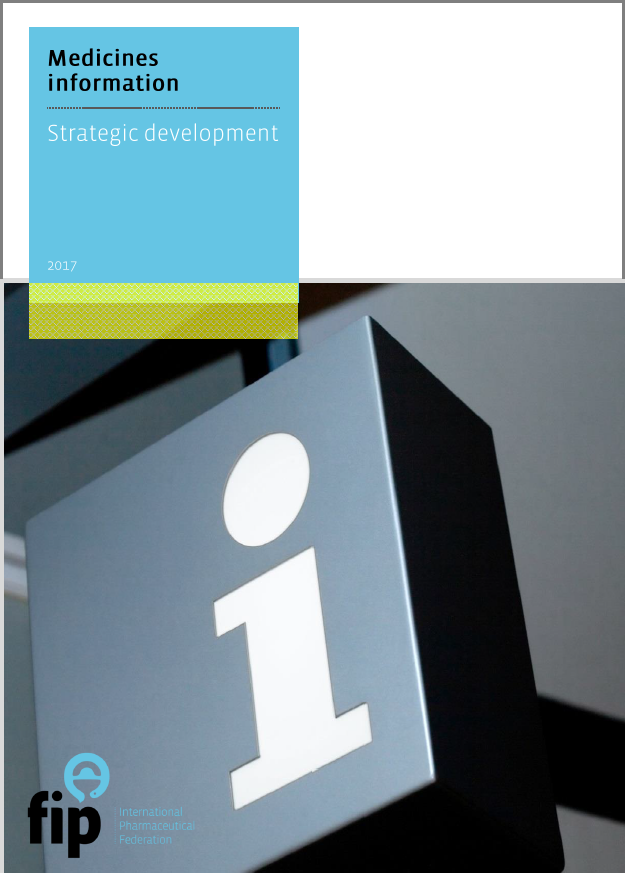
FIP Publication: Strategies for medicines information should be included in national medicines policies
A new publication by the International Pharmaceutical Federation (FIP) has set out an agenda for improving the provision of medicines information internationally. Medicines information: Strategic development sets out a vision for collaboration and action towards ensuring high quality medicines information around the world, through the use of specific recommended strategies.
The document also:
- Highlights the dangers of scenarios where medicines information systems tolerate inaccuracy, or become overwhelming, biased, unhelpful or simply not well understood;
- Conveys key goals of goals for the strategic development of medicines information as including medication safety and pharmacovigilance, rational prescribing and dispensing, and health literacy;
- Provides case studies of national medicines information strategies in countries such as the United States, United Kingdom and Finland
More information HERE.
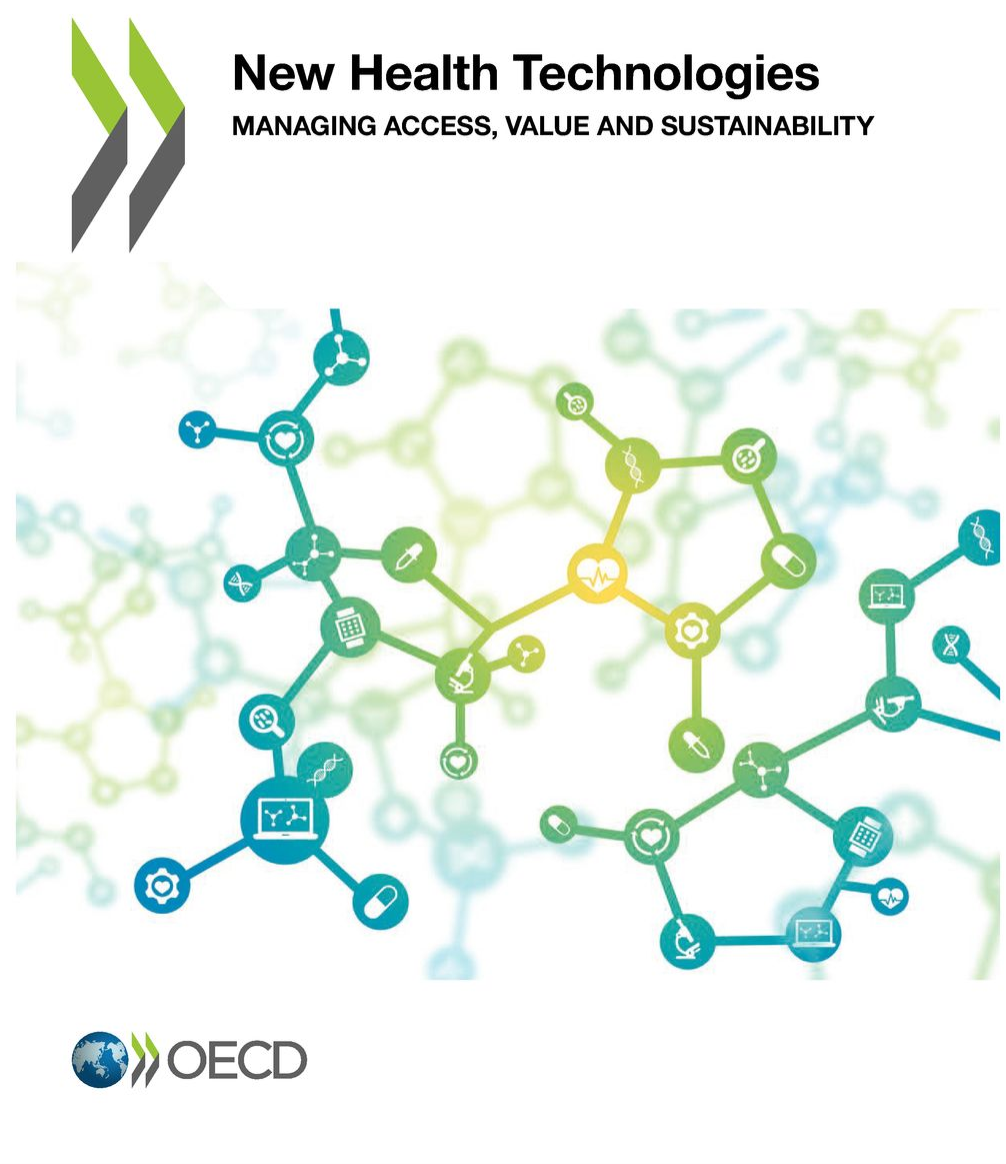
OECD make intervention to international debate about medicines prices
The Organisation for Economic Co-operation and Development (OECD) has published a report raising concern at the pressures being placed upon public health spending as a result of rising prices for medicines. The report draws particular attention to the struggle payers face in meeting the high cost of medicines that are targeted to very small populations, a trend likely to be exacerbated by the growth of ‘personalised’ or ‘precision’ medicine.
The report ‘New Health Technologies: Managing Access, Value and Sustainability‘ also singles out a simultaneous problem, in respect to new treatments for wide populations, such as for hepatitis, which might be very effective, but remain unaffordable to many who would benefit in almost all OECD countries because of their high budget impact.
The report therefore recommends that the prices paid for technologies “must reflect their real-world health benefits compared to alternatives, and be adjusted based on evidence about their actual impact.” Seeking important changes to existing procedures, the OECD suggest that payers must be equipped with the necessary powers to adjust prices and withdraw payment for ineffective technologies.
In order to achieve a necessary re-balancing of power between payers and manufacturers, the report authors recommend heightened transparency and co-operation between payers and international joint procurement initiatives, as tested in Europe and Latin America. Pricing agreements, which link the final price paid to the actual performance of the drug, as used in Italy and England, may also be effective if management and administration costs are controlled and the clinical data and evidence collected made widely available to the scientific community.
Finally, the report also evidences the causes of concern from the trend of many biomedical technologies being approved and adopted based on limited evidence of their safety and effectiveness. The report finds assessment of their performance in real world conditions to be rare which “compromises safety, is wasteful and no longer sustainable“.
Therefore the report recommends greater efforts to “harness the potential of health data more effectively. Use of personal health data creates major opportunities for health system improvement, research and disease surveillance, but requires the right governance frameworks to realise these benefits while managing the privacy risks.”
More information HERE.
 EJHP: UK hospital patient discharge, a patient perspective
EJHP: UK hospital patient discharge, a patient perspective
The online first edition of the European Journal of Hospital Pharmacy (EJHP) has recently published an original article examining patient perspectives on hospital discharge services at a large city-centre teaching hospital. The study identified areas for potential improvement of discharge services and the results will inform the development of a new model of care for patient discharge from hospital.
The article is available HERE.
————————————————————–
Watch the CTF consultation video and register to participate today!
The deadline to register to participate is Monday 20 February 2017. The consultation will commence on Monday 27 February 2017. Video available HERE.
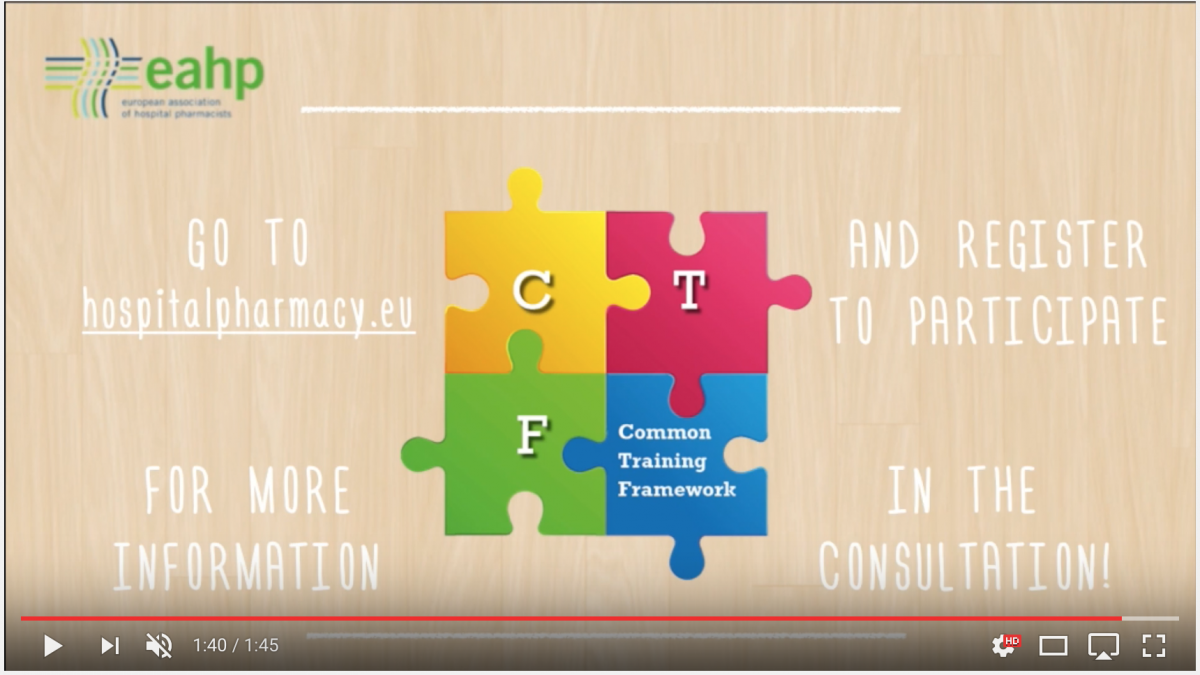
The Falsified Medicines Directive – did they forget the hospital pharmacy?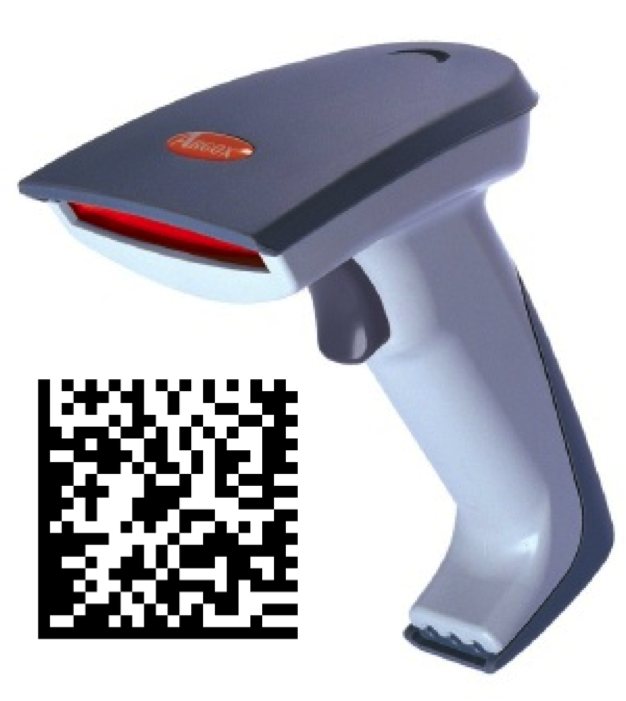
Don’t miss the Falsified Medicines Directive session at the 22nd Congress of the EAHP. More information HERE.
 Have your say! 3 open consultations of hospital pharmacy relevance
Have your say! 3 open consultations of hospital pharmacy relevance
1. Paediatric medicine development in Europe – How can we get better?
The European Commission want to hear from individuals and associations with experience of working with the Paediatric Regulation – is it working? Could it be improved?
Deadline for comments Monday 20th February
See EAHP EU Monitor 22 November 2016 for more information.
Consultation HERE.
2. Automatic Dose Dispensing – Do EDQM’s draft guidelines cover the issues?
The European Directorate for the Quality of Medicines and Healthcare (EDQM) has published draft European guidelines on Automated Dose Dispensing (ADD) and seeks stakeholder opinion.
Deadline for comments 24th February 2017.
See EAHP EU Monitor 16 January 2017 for more information.
Consultation HERE.
3. Antimicrobial Resistance – what more should the EU be doing?
The European Commission seek stakeholder input for a new 5 year European Union (EU) Action Plan to tackle antimicrobial resistance (AMR).
Deadline for reply 28th April 2017
See EAHP EU Monitor 2 February 2017 for more information.
Consultation HERE.























 The EAHP EU Monitor is a regular round up of news relevant to hospital pharmacy in Europe.
The EAHP EU Monitor is a regular round up of news relevant to hospital pharmacy in Europe.


 EJHP: UK hospital patient discharge, a patient perspective
EJHP: UK hospital patient discharge, a patient perspective

 Have your say! 3 open consultations of hospital pharmacy relevance
Have your say! 3 open consultations of hospital pharmacy relevance
